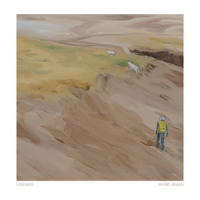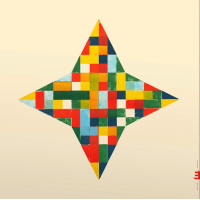Home » Jazz Articles » Album Review » Louis Stewart: Out On His Own
Louis Stewart: Out On His Own
Out On His Own made it onto CD in 1995 (Jardis Records), with the addition of three previously unreleased tracks. This Livia reissue dangles three more unearthed carrots in the shape of Stewart's self-penned "Blues" and alternate takes from the original sessions of the standards "What's New" and "Spring is Here." But even without these gifts for completists, the mere fact of this classic album's rerelease is worth celebrating. Weighted in favor of time-honored standards, Stewart, accompanying himself on eight overdubbed tracks, also brings his genius to bear on Chick Corea's "Windows," Kenny Dorham's "Blue Bossa," Steve Swallow's "Mr. Mojo's Well Laid Plan" and Charles Lloyd's "Forest Flower."
Few inhabit the melodic bones of a standard like Stewart. It is hard to think of a more exquisite reading of the Bob Haggard/Johnny Burke standard "What's New," with respect to John Coltrane, Ahmad Jamal and Dexter Gordon. The Dubliner's harmonically deft readings of Bronislaw Kaper's "Invitation" and Antonio Carlos Jobim's "Wave" sound definitive here. There are nods to Wes Montgomery's distinctive chordal language on the latter, though if Stewart hitched his wagon to any one guitarist it was probably Jim Hall, whose precision, clarity, and mellifluous fluidity are shared hallmarks.
At his most flowing, Stewart's dexterity is jaw-dropping, notably on a quicksilver version of Dorham's "Blue Bossa" and on the Victor Young/Ned Washington chestnut "Stella by Starlight." But Stewart is arguably at his most arresting on slower numbers, such as his wonderfully personal take on Jerome Morros' "Lazy Afternoon," where the warmth of his tone and his caressing touch shine through. Likewise, the guitarist's poetic interpretation of the Irish traditional tune "She Moved Through the Fair" would bring a tear to a banshee's eye.
Charming, exhilarating and inventively playful, Louis Stewart's Out On His Own stands assuredly alongside works by Joe Pass, Johnny Smith, Ted Greene, Barney Kessel, Kenny Burrell, et al. in the pantheon of great solo jazz guitar albums. Remastered by Michael Buckley, and with a 16-page booklet of insightful notes and unpublished photos, Livia Records has produced a high-quality reissue worthy of Stewart's timeless classic. Essential.
Track Listing
Blue Bossa; Windows; Darn That Dream; Wave; She Moved Through The Fair; Make Someone Happy; I’m All Smiles; Stella By Starlight; Lazy Afternoon; Invitation; I’m Old Fashioned; General Mojo’s Well Laid Plans; What’s New; I’ll Remember April; Spring Is Here; Blues; Forest Flower; What’s New (alternate take); Spring Is Here (alternate take).
Personnel
Louis Stewart
guitarAlbum information
Title: Out On His Own | Year Released: 2023 | Record Label: Livia Records
Tags
PREVIOUS / NEXT
Support All About Jazz
 All About Jazz has been a pillar of jazz since 1995, championing it as an art form and, more importantly, supporting the musicians who make it. Our enduring commitment has made "AAJ" one of the most culturally important websites of its kind, read by hundreds of thousands of fans, musicians and industry figures every month.
All About Jazz has been a pillar of jazz since 1995, championing it as an art form and, more importantly, supporting the musicians who make it. Our enduring commitment has made "AAJ" one of the most culturally important websites of its kind, read by hundreds of thousands of fans, musicians and industry figures every month.




















